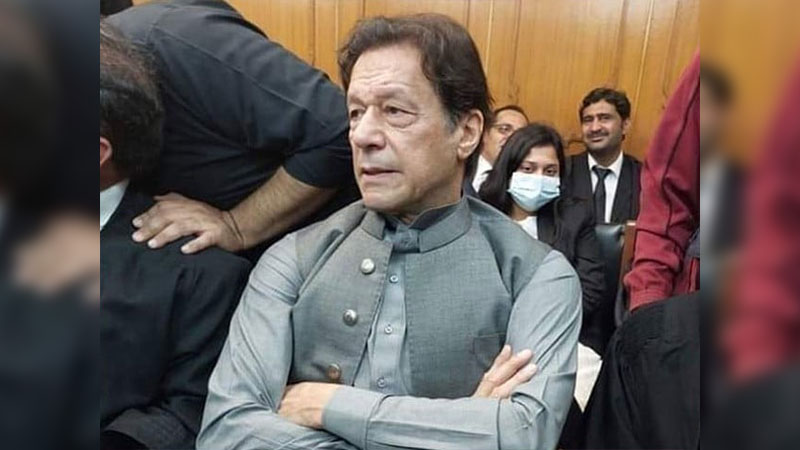After nine months, deposed Prime Minister Imran Khan will have his first opportunity to address the public through a video link during the hearing of a federal government intra-court appeal against the Supreme Court’s majority judgement declaring amendments to the National Accountability Ordinance (NAO) 2000 as illegal.
As Khan prepares for this crucial appearance, the question arises: Will he reiterate his narrative of “corruption” against political opponents or highlight alleged interference by “powerful circles” in the accountability process for political gains?
The apex court’s previous rulings have criticised the use of the National Accountability Bureau (NAB) for political engineering, adding complexity to Khan’s legal battle.
PTI leaders are set to meet Khan to strategise ahead of his public appearance, which will mark the first time he faces a bench led by Chief Justice of Pakistan Qazi Faez Isa, with whom PTI’s relationship has been tense since a presidential reference was filed during Khan’s regime.
While objections may arise from the government regarding live-streaming of the case, legal experts argue over the precedent set by allowing a convicted person the right to an audience.
Former additional attorney general Tariq Mahmood Khokhar cited historical precedents, including Zulfikar Ali Bhutto and Nawaz Sharif, who were granted similar opportunities in the past. Khokhar asserts that live-streaming Khan’s appearance would uphold constitutional principles of fair trial and equality before the law.
Advocate Abdul Moiz Jaferii highlights the significance of Khan’s public platform, predicting an intense courtroom drama despite attempts to restrict discussion to legal matters.
Khan’s upcoming address will make him the third former prime minister to address the Supreme Court during imprisonment, following Bhutto and Sharif, marking a pivotal moment in his ongoing legal battle.
